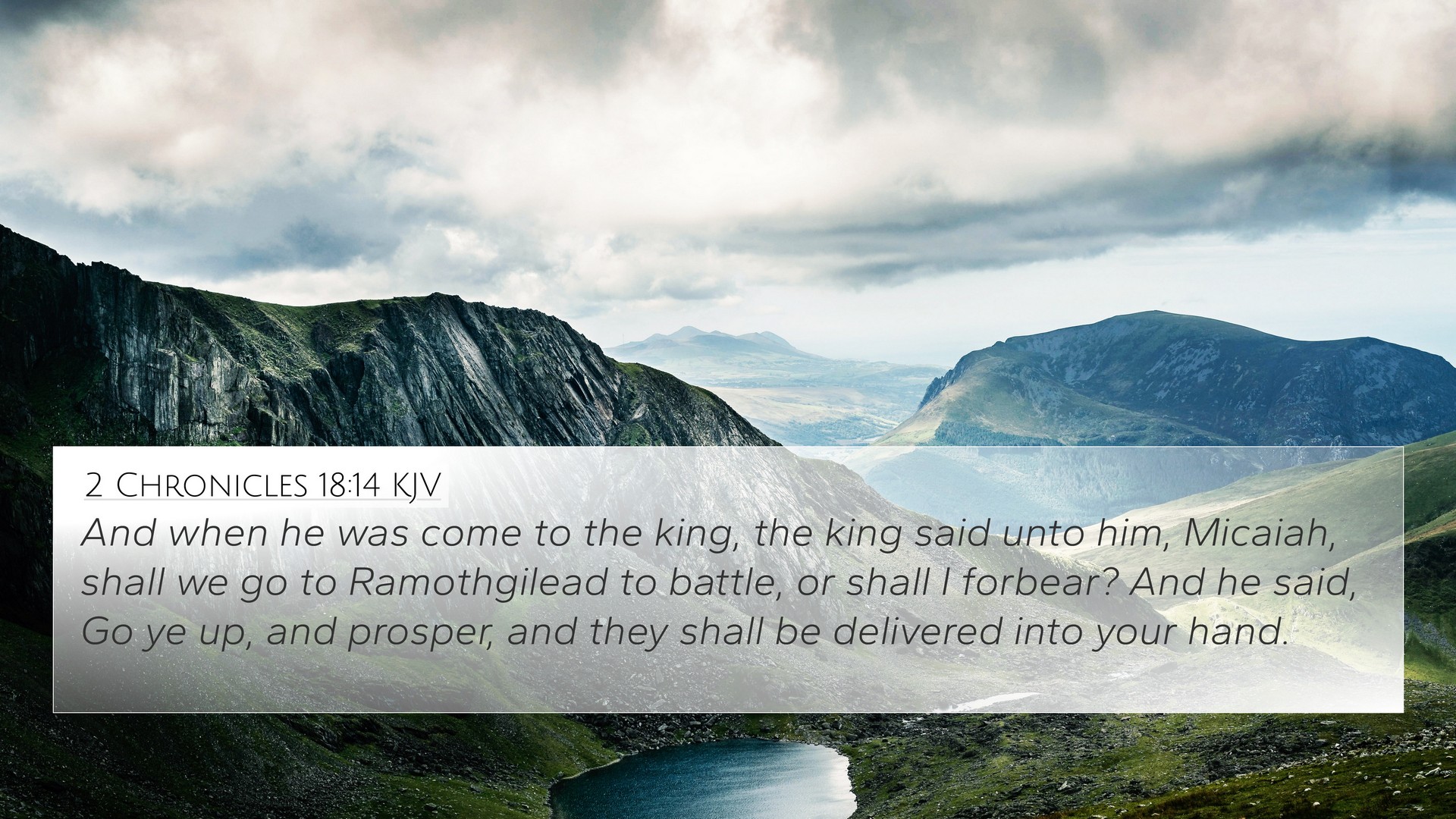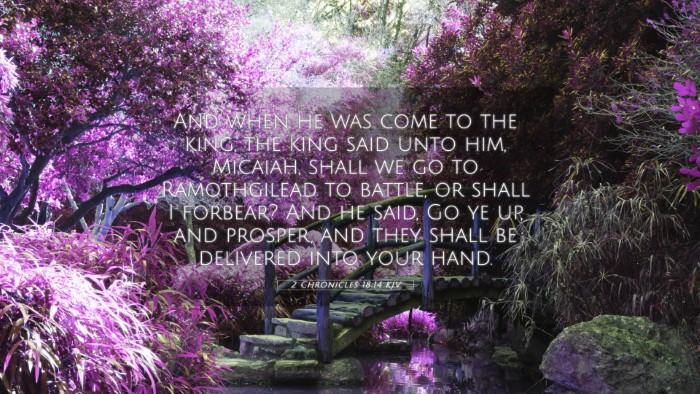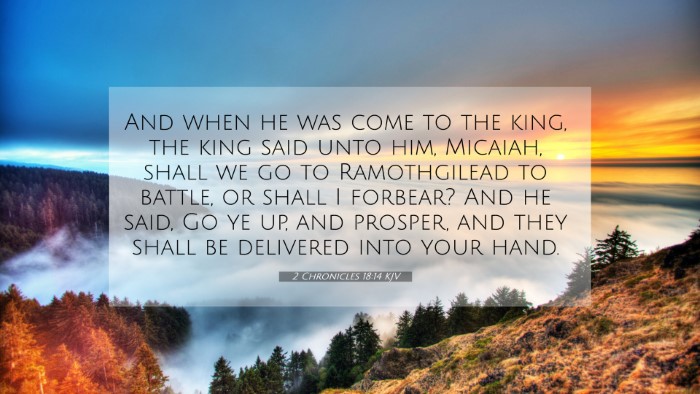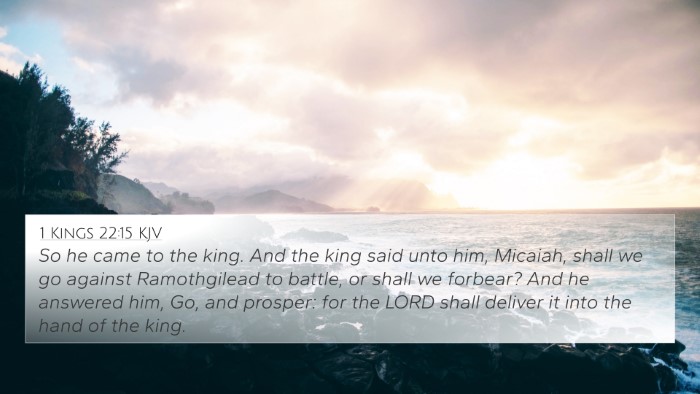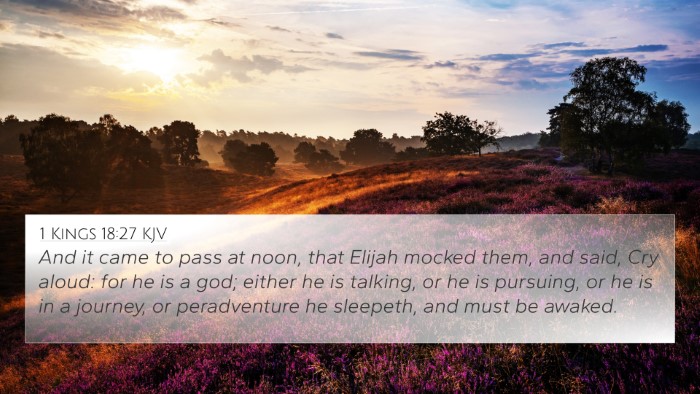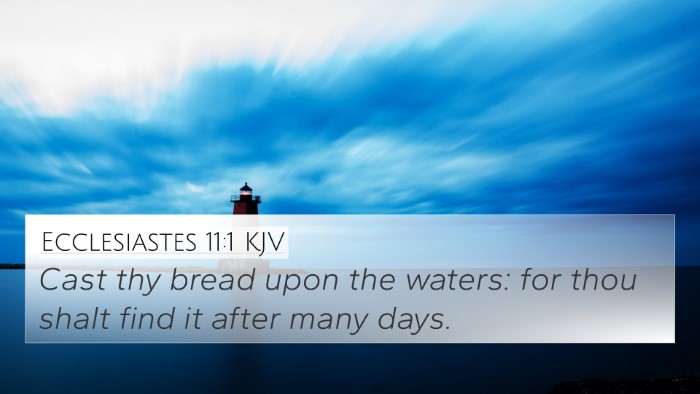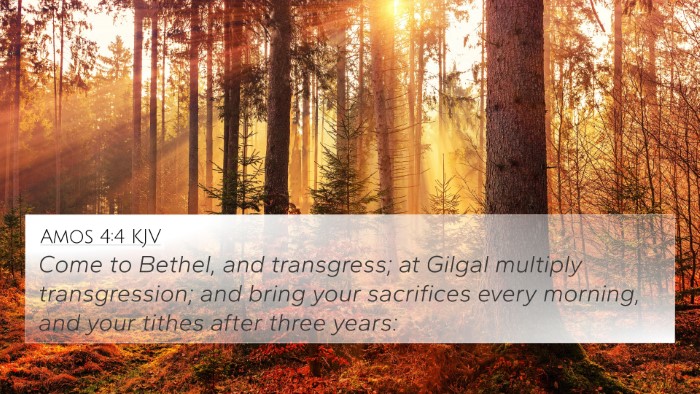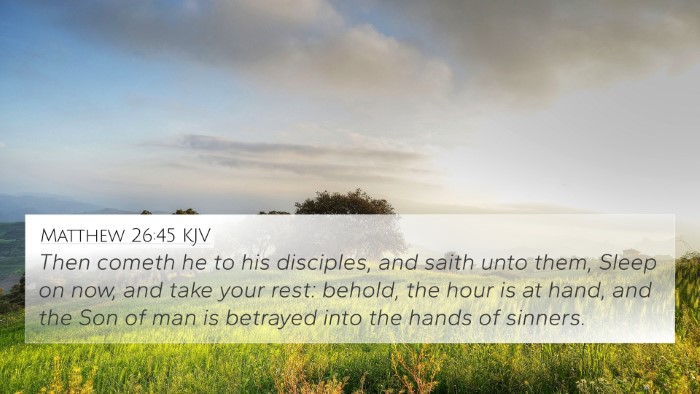Understanding 2 Chronicles 18:14
2 Chronicles 18:14 presents a significant moment in the narrative of King Jehoshaphat and King Ahab. This verse reads: "And when he was come to the king, the king said unto him, Micaiah, shall we go to Ramothgilead to battle, or shall I forbear? And he said, Go ye up; for God will deliver it into the king's hand." The interpretation of this verse carries both historical and theological implications, which we will explore using insights from public domain commentaries.
Contextual Background
This verse occurs within a larger narrative that highlights the relationship between Jehoshaphat, the king of Judah, and Ahab, the king of Israel. Their alliance is formed through marriage, which brings both political and spiritual dilemmas to the forefront of their decisions. The context sets the stage for an examination of God's guidance through prophecy and the spiritual state of Israel during this period.
Summary of Commentary Insights
-
Matthew Henry:
Henry emphasizes that the question posed by Ahab reflects both a military decision and the spiritual inquiry as to God's will in this matter. The verse shows Micaiah, the prophet, responding in a way that indicates sarcasm, which foreshadows the serious nature of the discussion about following God's commands versus seeking personal gain.
-
Albert Barnes:
Barnes points out that Micaiah's answer is significant not only for its content but for its delivery. His initial response seems to acquiesce to Ahab's desires, yet it serves to underscore the false prophets' misleading counsel. This tension between true prophecy and the desire for a favorable outcome is central to understanding this segment of scripture.
-
Adam Clarke:
Clarke provides insight into the irony present in Micaiah’s statement. He notes that while Micaiah appears to agree with Ahab's intent, he is subtly warning that true victory cannot be claimed without adherence to divine guidance. This reflects the broader theme of God's sovereignty over Israel's affairs.
Thematic Significance
Several themes emerge from 2 Chronicles 18:14, including the complexity of leadership, the necessity of true prophetic guidance, and the tension between human ambition and divine purpose. The verse serves as a poignant reminder of the conflict between following God’s will and pursuing personal or political agendas.
Cross-References
To deepen our understanding of the themes within this verse, we can look at several cross-references:
- 1 Kings 22:5 - Jehoshaphat’s inquiry for prophetic guidance.
- 2 Chronicles 18:7 - Ahab’s reliance on false prophets.
- Jeremiah 23:16 - The condemnation of false prophets.
- 1 Samuel 28:6 - The pursuit of divination and prophecy.
- Proverbs 16:9 - The LORD directing human plans.
- Isaiah 30:1-2 - The dangers of seeking guidance contrary to God’s will.
- Micah 3:5 - Discernment of false prophets.
- James 1:5 - Asking God for wisdom.
- Matthew 7:15-20 - Recognizing false prophets by their fruits.
- Acts 19:26 - The implications of following false counsel.
Conclusion
2 Chronicles 18:14 serves as a stark reminder of the delicate balance of faith, prophecy, and leadership. Discerning God’s true will amidst competing voices is a challenge faced by leaders throughout biblical history and remains relevant today. Through cross-referencing with other biblical passages, we enrich our understanding of the themes present in this verse, making it an important point of study for anyone delving into the complexities of faith and leadership.
